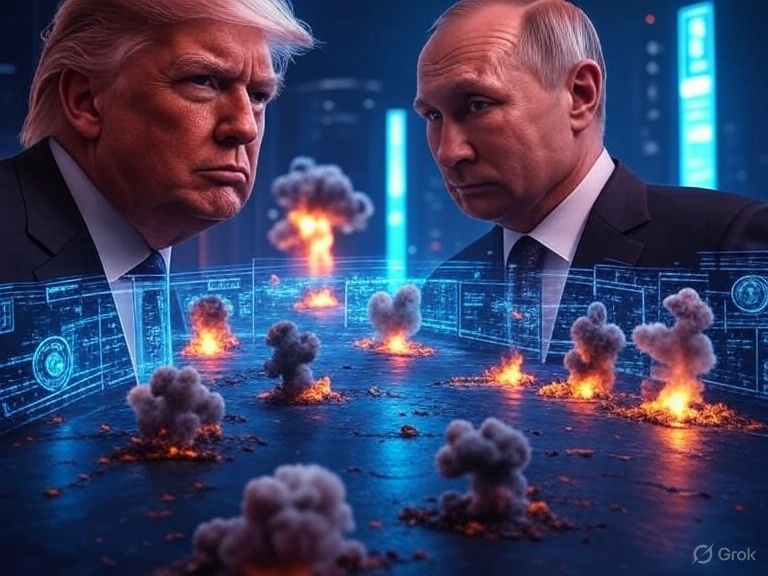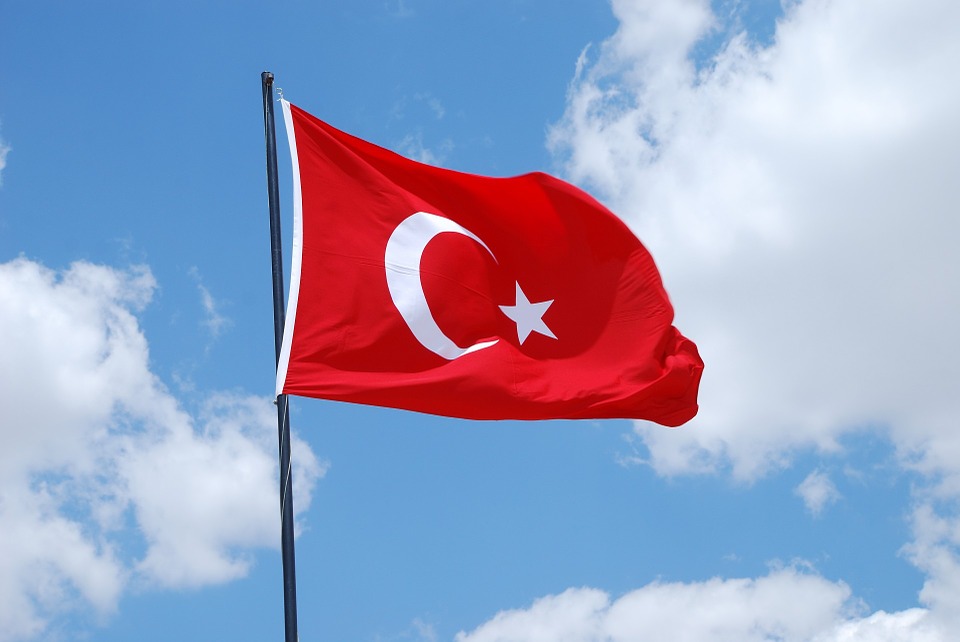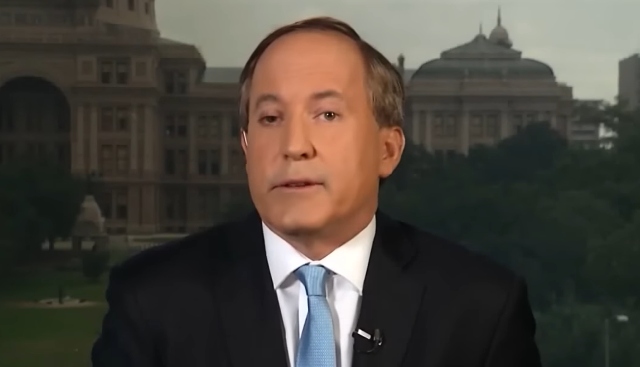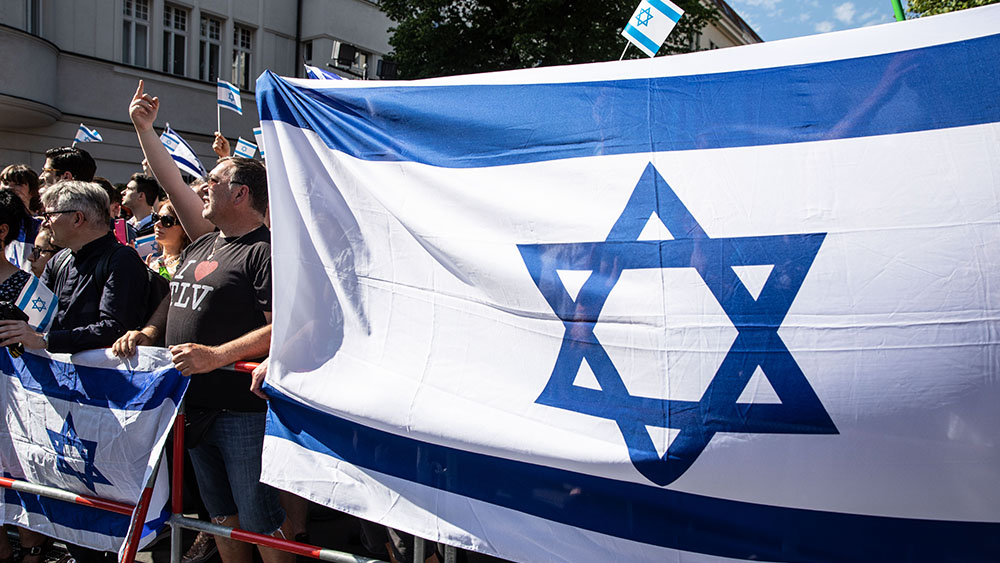 Parler
Parler Gab
Gab
- A senior Russian lawmaker, Alexey Zhuravlyov, warned that Moscow could station nuclear-capable missiles in Cuba and Venezuela, deliberately escalating tensions with the U.S. and invoking Cold War-era brinkmanship.
- Putin showcased advanced nuclear weapons tests (Poseidon underwater drone, Burevestnik cruise missile), prompting Trump to order the U.S. to resume nuclear testing "on an equal basis" with Russia, signaling a renewed arms race.
- Putin proposed a dubious "ceasefire" near Pokrovsk and Kupyansk, falsely claiming Ukrainian encirclement—a propaganda ploy to frame Ukraine as unwilling to negotiate. Meanwhile, Russian forces advance while violating international law (e.g., disguising troops as civilians).
- U.S. intelligence confirms Putin is doubling down on total victory in Ukraine, rejecting compromises. Kremlin officials amplify Soviet-style nationalist rhetoric, equating dissent with treason and hinting at further mobilization.
- While analysts dismiss Russia's nuclear threats as performative (given NATO's nuclear triad), Putin's brinkmanship aims to fracture Western unity over Ukraine. The Biden-Trump divide on handling Russia underscores the high-stakes geopolitical standoff.
False ceasefire offers and battlefield realities
Putin also proposed a brief ceasefire near the Ukrainian towns of Pokrovsk and Kupyansk, claiming Russian forces had encircled Ukrainian troops – an assertion the ISW rejected as false. Analysts interpreted the move as a propaganda tactic, portraying Russia as willing to negotiate while framing Ukraine as unwilling to compromise. On the ground, Russian forces continue advancing in the Pokrovsk direction, though Ukrainian defenses remain resilient. Geolocated footage confirms Russian gains in southern Pokrovsk and northeastern Myrnohrad, but Ukrainian drone battalions report fierce resistance, with Russian troops disguising themselves as civilians – a violation of international law. Despite heavy losses, Russian commanders appear determined to capture Pokrovsk, deploying an estimated 11,000 troops in the area. Yet, Ukrainian forces maintain pockets of resistance, complicating Moscow's efforts to secure a decisive victory. A recent U.S. intelligence assessment concluded that Putin is more committed than ever to achieving a battlefield victory in Ukraine, rejecting any compromise. Russian Foreign Minister Sergey Lavrov reiterated Moscow's maximalist demands, dismissing Trump's proposed ceasefire along current frontlines. Meanwhile, Kremlin officials are invoking Soviet-era nationalist rhetoric, urging Russian society to unite against perceived internal and external threats. State Duma Chairperson Vyacheslav Volodin declared, "If there is Putin, then there is Russia," framing dissent as treasonous. Such rhetoric suggests an impending crackdown, possibly ahead of another mobilization wave. Russia's nuclear threats and battlefield maneuvers reflect a deepening confrontation with the West, reminiscent of Cold War brinkmanship. While analysts doubt an imminent nuclear exchange, Putin's posturing serves to pressure NATO into concessions on Ukraine. With Ukraine's survival hanging in the balance, and Russia's nuclear rhetoric growing bolder, the world watches nervously for the next move in this high-stakes standoff. For now, one truth remains clear. Moscow's threats are not merely rhetorical; they are a calculated gambit in a broader war of attrition, with global consequences. Watch the video below that talks about how Trump's patience with Putin has "basically run out." This video is from the NewsClips channel on Brighteon.com. Sources include: YourNews.com BrightU.ai UnderstandingWar.org TruthSocial.com Brighteon.comTurkey REFUSES to ditch Russian S-400 missile systems despite pressure from Washington
By Ramon Tomey // Share
Texas AG Paxton takes Roblox to court, slams gaming platform as “breeding ground for predators”
By Ramon Tomey // Share
Russia’s Ukraine war toll surpasses 1.1 million casualties, British intel reports
By Belle Carter // Share
A legacy of lies: Smoking rates fall, but tobacco’s grip chokes health and economy
By Ava Grace // Share
Three Chinese University of Michigan researchers charged with bio-smuggling
By Ava Grace // Share
Governments continue to obscure COVID-19 vaccine data amid rising concerns over excess deaths
By patricklewis // Share
Tech giant Microsoft backs EXTINCTION with its support of carbon capture programs
By ramontomeydw // Share
Germany to resume arms exports to Israel despite repeated ceasefire violations
By isabelle // Share










